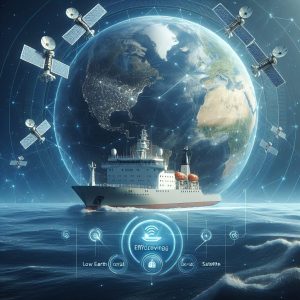The Importance of Transparency in FuelEU Maritime Compliance Market
In a strategic move aimed at strengthening clarity in the maritime sector, the Nordic energy company Gasum has begun to publish the daily price of FuelEU Maritime compliance units on its corporate website. This initiative, focusing on providing real selling prices for carbon reduction units, addresses the need for transparency in a market rapidly evolving due to new EU regulations.
Clarity in a Complex Market
The FuelEU Maritime regulation, in force since 2025, requires ships over 5,000 gross tonnage to gradually reduce the greenhouse gas intensity of the energy they use. This has created a compliance unit market, where Gasum plays a crucial role by providing clear and real prices for these units, avoiding common uncertainty among shipowners.
Jacob Granqvist, Vice President of Gasum’s maritime division, points out that “a more transparent and standardized FuelEU Maritime compliance market is necessary to support shipping companies in making the right decisions.” This move is a statement of confidence and transparency, fundamental elements in the maritime sector.
Innovation in Gasum’s Risk Model
- The core of Gasum’s offering lies in its unique bundling model, which not only provides compliance units but also allows customers to transfer all regulatory risk related to Gasum. This model is based on the operation of designated ships using bio-LNG derived from waste, generating significant compliance due to its low emissions.
- Bio-LNG, used by Gasum, can reduce emissions by an average of 90% compared to traditional marine fuels like Marine Gas Oil (MGO). Depending on the raw materials used, emissions can even be negative, creating a substantial compliance surplus.
- Gasum, as the group manager, assumes total contractual responsibility for the group balance, ensuring that the necessary amount of bio-LNG is always supplied to meet the compliance demands of its customer base.
Relevance of this Initiative
For maritime professionals, Gasum’s initiative represents an opportunity to optimize environmental compliance management and reduce regulatory risk. Price transparency allows better financial and operational planning. Navigators and nautical enthusiasts can see these measures as a path to a more sustainable future, aligning navigation with a global commitment to reducing environmental impact.
Gasum and the Future of Maritime Fuel
With a 40-year history in the gas market, Gasum is a key player in the transition to cleaner energy solutions. Its focus on renewable gas, such as bio-LNG, not only helps customers reduce their carbon footprint but also moves towards a carbon-neutral maritime future. Alongside its partners, Gasum is actively committed to promoting development towards a sustainable future on land and sea.
Conclusion
Gasum’s initiative to publish daily prices for FuelEU Maritime compliance units marks a milestone in maritime market transparency. It not only provides clarity to shipowners and navigators but also sets a standard for other industry players. This advancement reflects the growing importance of sustainability in the maritime economy and offers an inspiring example for the global maritime community.
For those interested in exploring more about these opportunities and how they can apply these innovations in their work or hobbies, Gasum represents a valuable resource towards understanding and complying with environmental regulations, contributing to a greener future for navigation.






